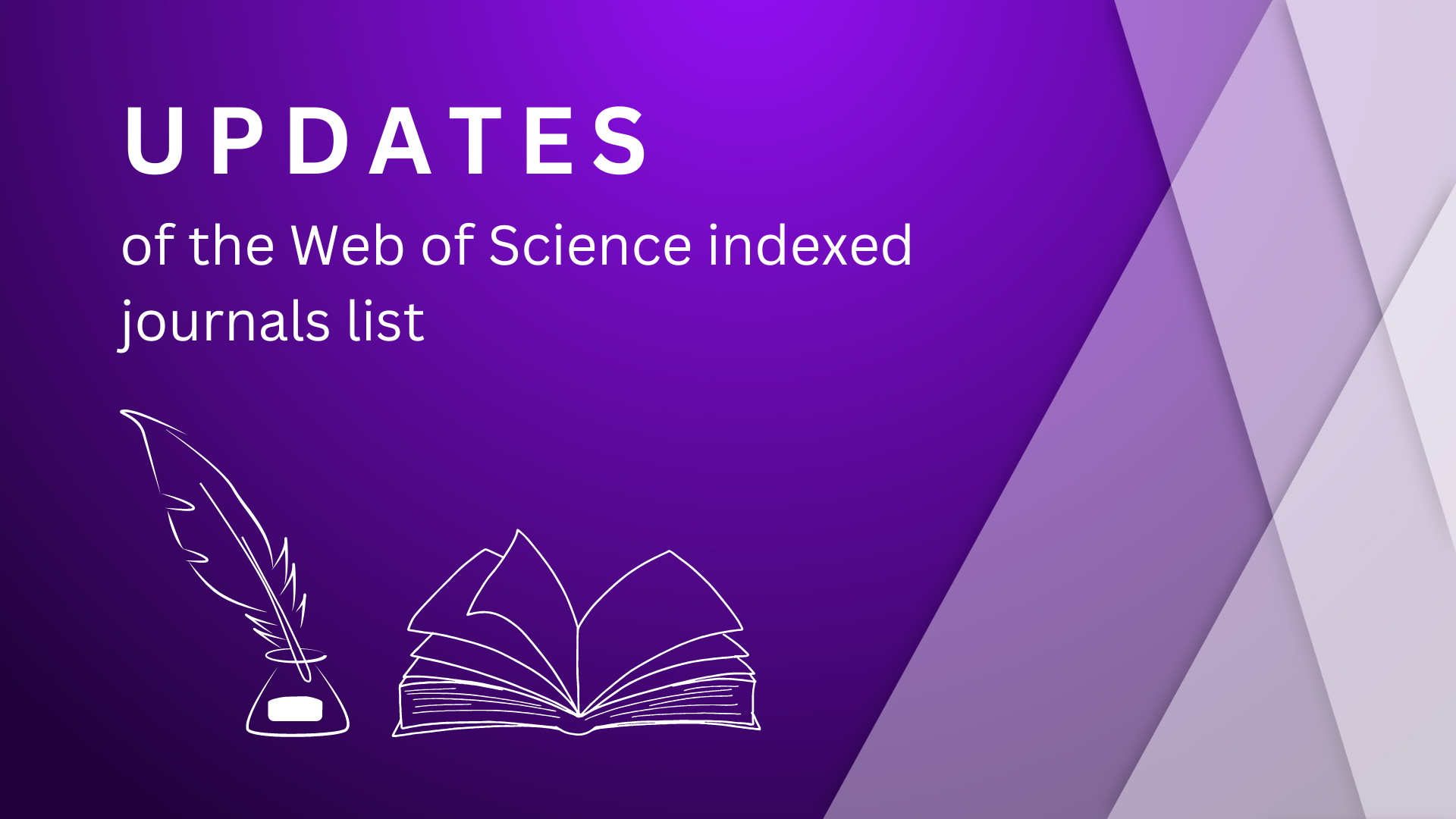Tag: Research outputs

HKU Contribution to Sustainable Development: Committed, Comprehensive, and Crucial
The 2030 Agenda for Sustainable Development (United Nations, 2015) provides a shared roadmap for achieving sustainable development by year 2030. Central to this agenda are the 17 Sustainable Development Goals (SDGs), which emphasize the need for global partnership to address pressing challenges and create a better world for present and future generations. The University of…
Read More
Publish and Share Your Research: Suggestions from Editors and Librarians Seminar Series
The Libraries is co-organizing a series of seminars with CITE (Centre for Information Technology in Education, Faculty of Education, The University of Hong Kong) to provide researchers with useful advice on publishing your research. Eight seminars on various topics by journal editors and librarians will be held in this academic year. No matter an early…
Read More
Unlocking the Path to Success: Tips for Becoming a Strong Researcher and Getting Published
Becoming a good researcher and getting published are two goals that go hand in hand. To succeed as a researcher, it is essential to both conduct rigorous research and communicate your findings effectively. Conducting rigorous research To conduct research, you will go through stages including: Below are some tools and training courses available via the…
Read More
A Step Forward Towards Open Access: The RGC Publication Gateway
The concept of Open Access (OA) in scholarly research community seeks collaborative efforts from different stakeholders to grant free and open online access permanently to academic information, such as journal article publication and research data, etc. As a major academic research funder in Hong Kong, the Research Grants Council (RGC) revealed its 5-year roadmap of…
Read More
Beyond citations — Demonstrate your research impact with alternative metrics
Introduction to Altmetrics Alternative metrics (also known as altmetrics) indicate the attention of scientific outputs which are shared, mentioned, and discussed in online environments, which are derived from users’ actions on various social media platforms and other online sources (e.g., Wikipedia) [1]. Altmetric.com is a platform to find altmetrics for research outputs by tracking a…
Read More
Avoid Falling Prey to Predatory Journals
Predatory journals The emergence of predatory journals (fraudulent, deceptive, or pseudo-journals), journals with deceptive and dishonest practices, has been reported in recent years [1-4]. The journals falsely claim to be offering peer review and publish all articles, regardless of their research rigor, in exchange for a fee. Predatory journals exploit the open-access model in which…
Read More
Extensive updates of indexed journal list on Web of Science for research integrity assurance
Clarivate announced in March 2023 that over 50 journals have been delisted from the Web of Science Core Collection in their latest update. The delisted journals failed to meet their quality criteria during the selection review. In the current selection practice, journals are evaluated by 28 criteria, including 24 quality criteria designed to select for…
Read More
A Review of HKU’s Research Contributions to the Sustainable Development Goals (SDGs)
Introduction The QS World University Ranking evaluates universities’ contributions to global sustainability by incorporating the United Nations’ Sustainable Development Goals (SDGs) into its methodology. QS uses a set of indicators, such as research output, academic reputation, and impact, to assess universities’ performance in each SDG, which are then combined to give an overall score for…
Read More
Towards a Framework to Measure Open Science Practices – PLOS Open Science Indicators
Open Science is “transparent and accessible knowledge that is shared and developed through collaborative networks” (Vicente-Saez & Martinez-Fuentes, 2018, p. 434). It encompasses emerging trends such as open code, open data, open access, and more. PLOS (Public Library of Science) is a non-profit, open access publisher in science and medicine, and perhaps, a journal publisher…
Read More
Journal submission process – What it has been & What it might become
From 31 January 2023, eLife, a peer reviewed, open-access journal in life sciences and medicine, will adopt a new “publish, review, curate” model for article publishing. There will still be the peer review process, but no more post-peer review accept/reject decisions. Instead, all papers that have undergone peer review will be published in eLife. They…
Read More